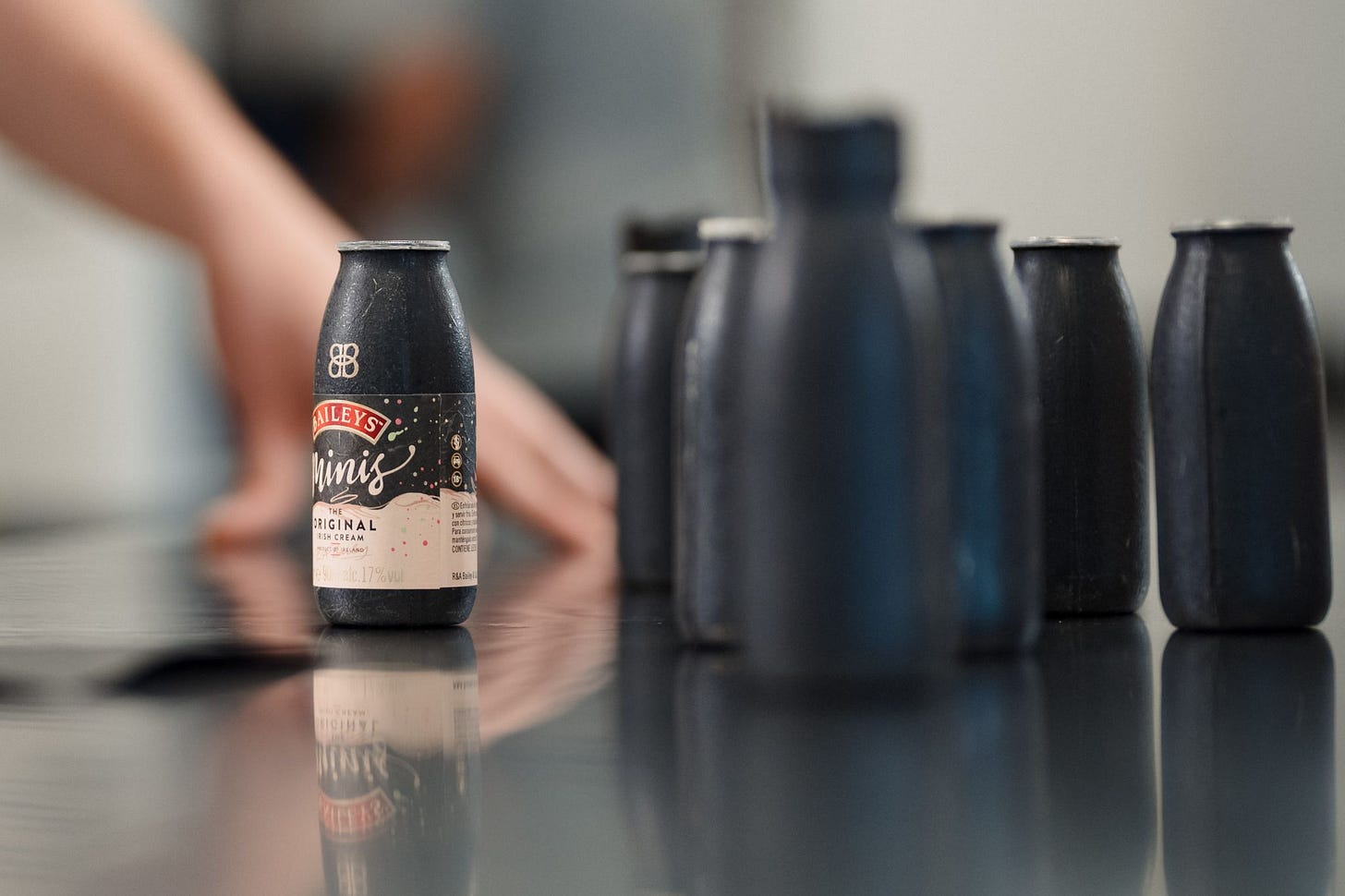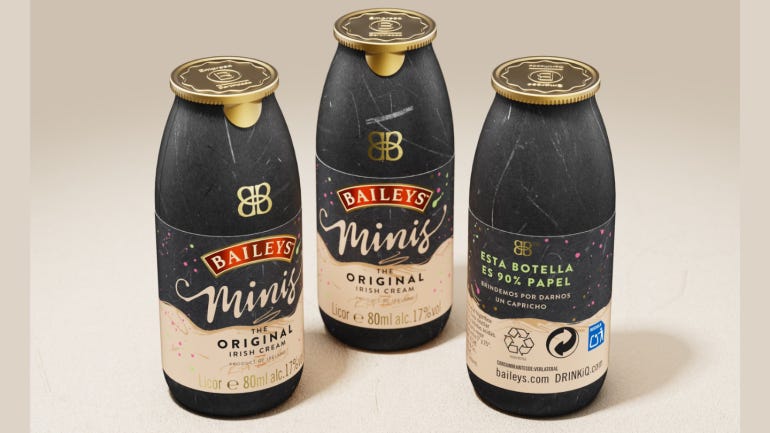Paper Bottles for Liquor?
Baileys (from Diageo) is trying it out.
Baileys, the world's most beloved Irish Cream liqueur, is taking a groundbreaking step towards sustainable packaging with a paper bottle trial.
This innovative initiative, in partnership with PA Consulting, marks a significant leap forward in the fight against plastic waste.
The Bottle: Innovation Meets Sustainability
The trial bottle is made from 90% paper, it utilizes a cutting-edge technique known as Dry Molded Fiber.
A thin plastic liner and foil seal ensure product safety and integrity, while minimizing the overall plastic footprint.
This pioneering design represents a major step towards achieving Diageo's ambitious sustainability goals, which include reducing plastic packaging by 17% by 2030.
Trial Launch: Barcelona Gets a Sneak Peek
The initial phase of the trial will see 2,000 mini-sized (80ml) paper bottles of Baileys Original Irish Cream Liqueur distributed at the Time Out Festival (in Barcelona), held on May 25th and 26th.
This targeted launch allows Diageo to gather valuable consumer feedback on the paper bottle's functionality, aesthetics, and overall user experience.
The Good: Innovation and Consumer Focus
Baileys' paper bottle trial is a welcome innovation in the fight against plastic waste. Here's what makes it promising:
90% Paper Construction: This significantly reduces plastic usage compared to traditional bottles.
Dry Molded Fiber Technology: This cutting-edge technique represents a leap forward in sustainable packaging design.
Consumer-Centric Approach: The trial at the Time Out Festival allows Baileys to gather valuable feedback on user experience and aesthetics.
Alignment with Sustainability Goals: The trial demonstrates Diageo's commitment to its 17% plastic reduction target by 2030.
The Maybe: Functionality and Environmental Impact
While the concept is impressive, some questions remain unanswered:
Functionality: How well does the paper bottle perform in terms of durability, leakage, and recyclability (including the liner and seal)? It's important to note that the bottle still contains a thin plastic liner, which may complicate the recycling process for consumers unless properly separated.
Life Cycle Assessment: A full life cycle assessment is needed to understand the bottle's overall environmental impact compared to traditional packaging. For example, is the production of Dry Molded Fiber energy-intensive?
My Two Cents: A Step in the Right Direction, But We Need More
Baileys' paper bottle trial is a significant step towards sustainable packaging. However, it's important to maintain a critical eye. While the 90% paper construction is commendable, the presence of a plastic liner remains a hurdle. Here's what I hope to see:
Transparency: Diageo should share the results of the life cycle assessment and consumer feedback openly, including insights on the plastic liner's impact on recyclability.
Scalability: If successful, can this technology be further developed to eliminate the need for a plastic liner, creating a truly single-stream recyclable option?
Industry Collaboration: Can this innovation inspire collaboration within the beverage industry to tackle plastic waste collectively, focusing on both material innovation and clear consumer education on proper recycling practices for complex packaging?
Ultimately, the success of Baileys' paper bottle trial lies in its ability to not only reduce plastic but also create a truly sustainable alternative.
By focusing on transparency, developing liner-free solutions, and fostering industry-wide collaboration, Baileys can truly lead the way in a more sustainable future for beverage packaging.





